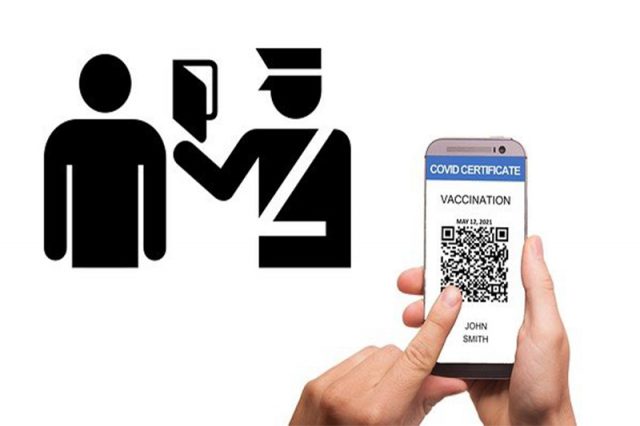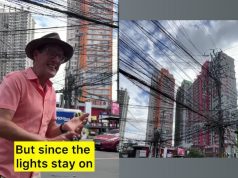A TikTok user was reminded that the Palace encourages establishments to enforce the “no vaccine no entry” rule after calling out a shopping mall for reportedly refusing those unvaccinated against COVID-19.
Two videos went viral on the mobile video-sharing app on Thursday which showed the user visiting a popular mall in Quezon City with a companion.
According to the uploader, they were refused from entering the premises since they are not vaccinated against the viral disease.
“Oh my god, sobrang higpit dito, guys…Hindi ka makakapasok ‘pag wala kang vaccine. Iba na naman ang patakaran nila eh, ‘no,” the TikTok user was heard saying in the video.
The user also uploaded another video where she claimed that there were others who were allegedly unable to enter the mall due to the policy as well.
“Hindi naman sa ayaw magpa-vaccine, [pero] ba’t ganto?” she wrote as a caption with a smirking face emoji.
The first part of her video also made its way to r/Philippines, a community within Reddit dedicated to Filipinos and everything about the country.
Majority of those who watched her clip chided her for calling out the commercial establishment for its alleged policy.
“E di magpa-vaccine ka ate, o hanap ka ng ibang [mall] na pwede [doon] ang hindi bakunado. I know it’s your right if you don’t wanna be vaccinated but please, it’s not like this pandemic will end itself,” a Reddit user commented in response to the video.
“Karapatan niyo ang ‘di magpa-vaccine. At karapatan din nila na hindi magpapasok ng hindi bakunado,” a Filipino commented on the original TikTok video.
“‘Wag kasing gumala if hindi ka vaccinated,” another online user wrote in the video’s comments section with a smirking emoji.
“There’s nothing wrong with it, it’s not mandated to get [a] vaccine but, it reflects your moral values as an individual of getting the vaccine,” a different TikTok user commented.
“Since you asked ‘bakit ganito,’ ma’am, it’s for your safety. If we know what vaccines are and how it works, we won’t be asking ‘bakit ganito?'” wrote another TikTok user.
On ‘no vax, no entry’
The Palace on November 5 encouraged businesses to strictly enforce the “no vaccine no entry” policy to prevent a surge of COVID-19 cases as the country continuously receives vaccines from other countries.
“If you will accept unvaccinated customers, COVID-19 will surely spread. If this happens, we will have to escalate alert levels again and you will have to close down your businesses,” former presidential spokesperson Harry Roque said before.
“So to the businessmen, if you want to keep your establishments open, enforce the ‘no vaccine, no entry’ policy,” he added.
The Palace made the appeal after Metro Manila‘s COVID-19 alert level was downgraded to Alert Level 2 which allows higher indoor capacity for establishments.
The maximum capacity for indoor businesses is 50% for fully vaccinated individuals and 70% for outdoor businesses, regardless of vaccination status.
Malacañang said that an individual will only be considered ineligible for vaccination through the “presentation of a medical clearance issued by a government health office, or birth certificate, as the case may be.”
In a more recent pronouncement, it said that businesses may deny entry to the unvaccinated but are eligible to get a jab starting December 1.
Frontline and emergency services are not included in the policy.
According to the health department, those who are ineligible for a COVID-19 jab include those below 12 years old, are allergic to vaccine components such as polysorbate and PEG and those with severe allergic reaction (e.g. anaphylaxis) to the first dose.
Experts note that getting vaccinated against COVID-19 “can reduce the risk of getting and spreading the virus,” as well as prevent hospitalization and death.
“Vaccines work by training and preparing the body’s natural defenses — the immune system — to recognize and fight off the viruses and bacteria they target. After vaccination, if the body is later exposed to those disease-causing germs, the body is immediately ready to destroy them, preventing illness,” the World Health Organization said on its website.










